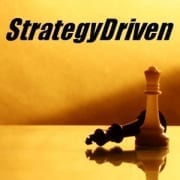The Value of Account-Based Marketing for CRM
In this era of information, businesses are searching for advanced solutions to the issues they face. The internet has been both a benefit and a mystery for businesses. Brand leaders and marketers are online continuously trying to figure out the Rubik’s Cube that is online marketing. The problem of doing business on the internet is that it is fairly new as far as platforms are concerned, and everyone is looking to find how they can implement the various outlets online to promote their businesses.
For years, marketers have been following the same protocols to build their client base with mixed results. The days when companies sought to build their customer database by seeking out individuals has resulted in diminishing returns. Companies have begun using the tools that they have traditionally used to market to individuals to market to other companies. Account-based marketing has breathed new life into the marketing strategies of many companies. Along with the power of CRM platforms, ABM has given businesses the opportunity to earn more by doing less.
What is Account-Based Marketing?
With traditional marketing online, the concept was to identify a key demographic that represents the ideal customer or client for their product or service. Account-based marketing is a strategy that focuses squarely on targeted accounts that lead to companies as clients rather than the public.
The ABM strategy uses personalized marketing campaigns that work to build a rapport with the contacts of the desired accounts. For instance, if a business decides that they want to service a national company with their products, they may begin to engage the VP, or other influential people in the company, with marketing emails personalized to speak to their values and needs. This type of strategy is perfectly suited for CRM platforms.
What is CRM?
Customer relation management (CRM) platforms are software applications that are used to compile, engage, and monetize a prospect and customer database. These platforms organize and analyze the data gathered about the current customers and prospective customers for the benefit of building a relationship and marketing special offers.
There are six features of CRM platforms that increase the odds of successful ABM campaigns. These strategies are as follows:
- Lead Management: refers to tracking sales leads and distribution
- Customer Service: is made easier by using the customer data, purchase information, and patterns of each customer
- Marketing: targets customers and prospects with personalized campaigns
- Workflow Automation: automatically performs repetitive tasks that are crucial to the success of your marketing strategy
- Business Reporting: complies reports on sales, customer care, and marketing
- Analytics: studies the data gathered to assist in the execution of the marketing strategy
Your Ideal Customer Profile
The first process involved in ABM is creating a profile for your ideal customer. Rather than looking for a specific demographic, you are looking for the types of companies that would likely be interested in your product offering. You need to identify companies that are worthy of your marketing efforts and those that are likely to be a waste of time.
Compile Key Data About Customers
For CRM to work, it must be fed data to categorize and analyze. Whether it is a company that you are seeking to acquire as a client or a business that is currently doing business with, CRM platforms will collect and organize this data to strengthen your personalized campaign for each account. Knowing the purchasing cycles, needs, and contact information for your customers and prospects gives you the insight needed to draft focused marketing transmissions for these accounts.
Identify Profitable Accounts
When data is properly organized, it paints a clear picture and tells a story. CRM software is easily able to identify where the bulk of your business is coming from. It is also able to identify accounts that are underperforming. Account-based marketing campaigns can benefit companies by only focusing on accounts that are performing satisfactorily.
Automate Your Workflow
If you are required to manage a large volume of accounts, the automation of your workflows will ensure that all of your accounts get equal service. Using the automated marketing features in your CRM software, you can automate workflows based on set criteria programmed to trigger specific tasks. An example of this would be an email being sent after a prospect downloads a piece of content. The CRM is triggered by the download to send the personalized email.
Disseminate Social Media Posts Wisely
Social media has become an important factor in business marketing. By knowing the targets that you are looking to attract at the onset of your strategy, you know the type of social content to produce. Many CRM platforms are keen on delivering scheduled social media posts.
Matching Leads to Accounts
Being able to match leads to their accounts is a fundamental part of ABM. Being able to attribute the leads to the appropriate accounts is the only way you can effectively execute the ABM strategy. If you are going to implement an ABM strategy, you will need to make sure your CRM can properly match leads to accounts.
Conclusion
As you can see, the power of CRM will amplify your ABM marketing efforts. Just as there are always early adopters of new technologies, the ABM movement offers a tremendous opportunity to market leaders to increase their profits by looking for whales rather than guppies. Building and maintaining strong relationships with other businesses can create amazing opportunities for your business.

















Leave a Reply
Want to join the discussion?Feel free to contribute!